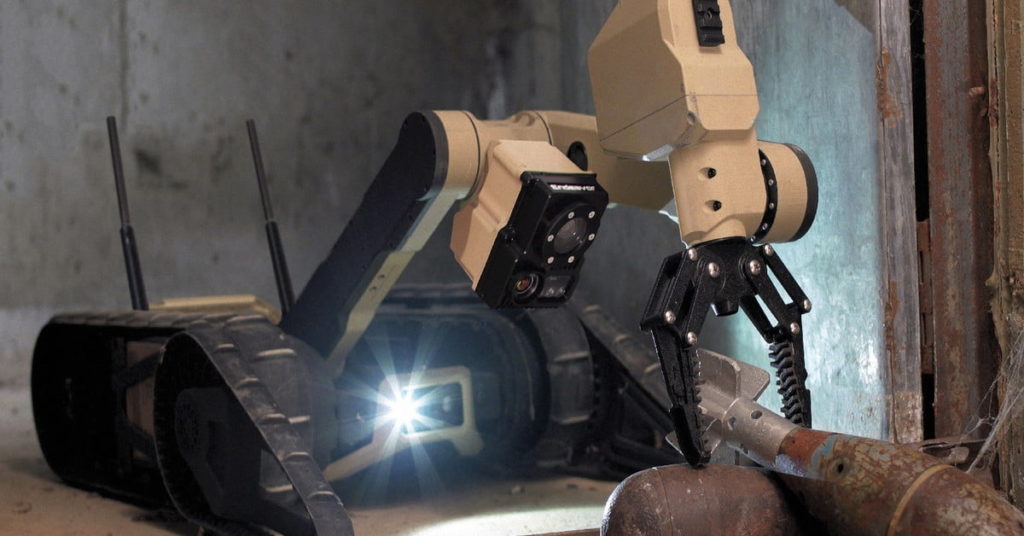U.S. Army Could Acquire a Fleet of 3,000 Bomb-Defusing Scorpion Robots
It sounds like something out a science fiction movie, but it’s not: The U.S. Army may be well on its way to acquiring a 3,000 strong fleet of battlefield-ready scorpion robots.
The robots in question are the creation of Endeavor Robotics, a leading company in developing and building tactical unmanned ground vehicles. Called the Scorpion, the sub-25-pound robots are small enough to be carried in a backpack. Once removed, they can then be powered up in less than one minute and used for carrying out a variety of tasks, including remotely defusing bombs.
“Once on the ground, Scorpion can travel over rough terrain, up and down inclines, climb stairs, and even operate while submerged,” CEO Sean Bielat told Digital Trends. “It has a unique manipulator arm that can rotate continuously to grasp anything nearby, plus multiple cameras to give its operator various high definition views — [such as] thermal and night-vision — for excellent situational awareness. Scorpion’s gripper provides best-in-class strength for a robot of this weight.”
Another innovative and unique aspect of the Scorpion robot is its lightweight composites body, which can be repaired in the field by soldiers using 3D-printed parts. That means less downtime, resulting in a robot that’s ready for its next mission faster. Its open architecture design, meanwhile, makes it easy to integrate third-party sensors and other devices.
“Scorpion requires a human operator, but does have autonomous capabilities,” Bielat continued. “Its controller includes a number of preset ‘poses’ that the robot will automatically move into with the touch of a button. Additionally, if the robot loses communications during an operation, it can autonomously retro-traverse back the same path to regain communications to keep the soldier up and running. The Scorpion controller also allows the operator to take control of other ground robots, as well as unmanned aircraft, to improve battlefield awareness. We expect Endeavor’s advancing work in autonomy to play a part in future upgrades, which will allow the robot to be even more mission-capable.”
So with all of these qualities, why the doubt about whether the U.S. Army will acquire Endeavor’s creation? The reason is because it’s competing against other robots also hoping to net the $429 million government deal. An announcement from the Army’s Common Robotic System-Individual (CRS-I) program is expected in early 2019. Whichever company winds up scoring the contract, we’re expecting to see something pretty innovative. And, hopefully, life-saving.




